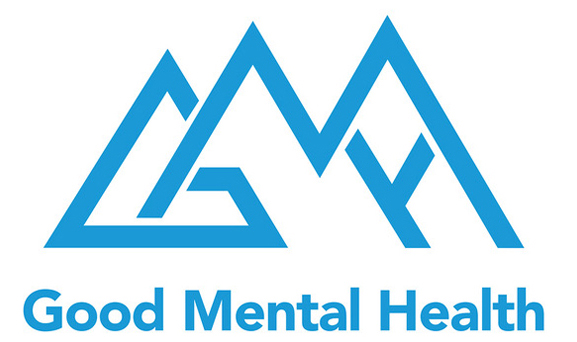Something told me to Google my stepfather’s name.
A nudge guided me to skip going to his Facebook page, as I had many times in the past, and to use the search engine instead.
And there it was. His obituary.
He passed away six months ago. He has been cremated, his ashes interred, a memorial service held.
I never knew.
It’s the price I pay for freedom.
Estrangement from an emotionally abusive family has a price, and the price can be high.
In order to explain, let’s first talk about the common dynamics of an emotionally abusive, dysfunctional family.
Isolation in Dysfunctional Families
Dysfunctional families often display two patterns: enmeshed or avoidant.
In an enmeshed family, the unspoken agreement between the family members is that they must all feel the same way all the time. If one family member is in turmoil, then all family members must join them in their turmoil. This requires each family member to give up their individual feelings and desires to participate in the collective family drama they have all subconsciously agreed to.
For example, Mom suffers from depression. Every morning, Dad gets the kids up and out the door for school while Mom stays in bed. Dad and kids go out into the world, knowing that Mom is home and suffering. During those hours away from home and away from Mom, Dad and kids have the ability to focus on their own feelings and desires but they don’t. No matter how good they may feel in the present moment, Mom’s suffering is never far from their minds.
As a result, each family member lives with a foreboding sense of doom. Not because anything is necessarily wrong in their individual lives but because if Mom is feeling bad, then they all must feel bad. They learn to check their happiness at the door because once inside with Mom, her suffering overshadows everything else. Eventually, the mood of the entire family changes. Dad and kids stop inviting friends over because Mom can’t handle it. They learn to keep the house quiet, the shades drawn, avoid asking anything of her, and to make minimal fuss. The family becomes more and more isolated from the outside world, trapped inside their dysfunctional family system and mired in their collective pain.
An avoidant family, on the other hand, has an unspoken agreement to remain emotionally unplugged from each other. If one family member is going through a time of intense emotion, whether happy or sad, the other family members do not offer validation, support, or encouragement and will instead send the message to suck it up, or just deal with it.
Since it is the people we are closest to during childhood whose actions teach us how to process and regulate our own emotions, an avoidant family makes it impossible for family members to connect on an emotional level at all. Children who do not learn to connect emotionally with their parents and siblings have a hard time connecting with their peers, leading to feelings of isolation and loneliness. Without strong relationships, these children begin to feel that they have no friends, that no one understands them, and that they have no where to turn to get their emotional needs met.
Both enmeshment and avoidance lead to families who are isolated from the outside world. Unable to make authentic connections with each other, the family members also can’t make authentic connections with other people. Since their emotional needs have remained unmet by the people who should love them the most, they become distrustful of others, believing that no one will ever be there for them. This perpetuates a cycle of more and more isolation.
What if one of the family members demands to claim their own emotional health separate and apart from the rest of the family? As you might guess, the dysfunctional system cannot withstand that level of awareness because it requires that all members of the family also become more aware. The family member who begins healing is often forced to choose between remaining in the family and therefore in denial of their emotional pain, or becoming an “outsider” through their own increasing awareness. For more information, read —>Dealing with the CrazyMakers in Your Life.
Triangulation in Dysfunctional Families
A hallmark communication pattern often seen in dysfunctional families involves triangulation.
Triangulation means that family members speak to each other through a third person but not directly to each other. Triangulation exists, as the term implies, among as few as three people but can also exist in families of a much larger size.
Think of this family communication pattern as a bicycle tire in which the person who triangulates is the hub and all the family members are spokes on the wheel. Each individual spoke is fixed and alone, unable to interact with the other spokes. However, it is connected to the hub, which is also connected to every other spoke. As a result, the spokes (or family members) all hear about each other via the communication which passes through the hub, even though none of the spokes ever communicate directly with each other.
This unhealthy communication pattern perpetuates isolation among the family members. Instead of building interpersonal relationships, the family members talk to each other (and about each other) through a third party. This gives the person who is triangulating tremendous power over all members of the family because it is ultimately up to the “hub” as to what information all other family members do or do not receive about any individual person.
In my own enmeshed family of origin, my grandmother was the hub; and when my grandmother passed away, my mother became the hub. As a young adult, I would call my mother every week not only to “check in” with her, but to also hear the news about all the other members of the family.
Never once did I call another family member individually, and never once did another family member call me. The only information I received about an individual was the information my mother chose to share and, unfortunately, it was filtered through the emotionally unhealthy paradigm with which she viewed the world.
Estrangement and Dysfunctional Families
It was during a particularly painful time in my life, when I needed tremendous support but couldn’t have felt more alone, that I realized I had to break free from the isolation that comes with being enmeshed in an emotionally dysfunctional family once and for all. I literally had to choose: remain isolated with my dysfunctional family of origin and risk my own annihilation or step into the light of awareness and gain the support of the rest of the healing community and the world at large.
I chose to step into awareness, but not without cost.
I now identify these eras of my life as “B.E.” and “A.E.” or Before Enlightenment and After Enlightenment. However, I could just as easily think of them as Before Estrangement and After Estrangement because that is precisely what occurred.
After struggling all my life with feelings of Will I Ever Be Good Enough? I approached my mother about the issues in our relationship. Whereas I was open to healing the aspects of our relationship that needed healing, my mother was not. My increased awareness, and her unwillingness to become more aware, led me to become an “outsider.” No longer considered “safe” to the dysfunctional system, my spoke fell from the wheel and I lost contact with the hub.
It is the reason that my stepfather died and I didn’t know. It is the reason that I would have never known without the Google machine.
How to Heal through Estrangement
Estrangement is an extreme outcome for any family system.
Most parents will do anything in their power to alleviate their child’s pain or suffering, and therefore in a majority of cases, we can approach our desire for healing with some level of safety and certainty. But for those of us who have had the other more extreme experience, I offer these words of encouragement:
- Remember that, on the inside, our parents are still the little children they once were, complete with unresolved traumas and wounds which cause them to approach life in the manner they do today. Without subjecting ourselves to further emotional abuse, we still have the ability to extend compassion and understanding without condoning their behavior. Kindness, compassion, and forgiveness are healing for them and for us, even if done from afar. Positive thoughts go a long way.
- We have all done the best we could with the information we had at the time. Instead of beating ourselves up for not escaping the dysfunction sooner, let’s love ourselves for the strength and courage it took to finally break free.
- Our personal healing is a gift we give not only to ourselves, but to everyone. Healing our own childhood trauma makes us better partners, spouses, parents, and friends. My healing is your healing, and your healing is mine. I am grateful for the work you are doing to heal.
- Give yourself permission to mourn the loss. In spite of growing up in a difficult family, we have an expectation, desire, and wish that it was something other than what it is. Be patient with yourself and be kind. We are not only leaving behind the bad memories, but also the good. Moreover, we are leaving behind the dream of what might have been.
As always, if you found this information helpful, please share it. And if you feel you are in the exact right place and would like access to more resources and guidance, read more about the Good Mental Health team and join us on Facebook.
P.S. Watch it here on YouTube.




 Hi, I'm Diana Brummer a psychotherapist, writer, and coach in St. Johns, Florida. I love helping people thrive in their relationships and their lives. My hope is that you find the information in these articles educational and useful. Thank you for stopping by!
Hi, I'm Diana Brummer a psychotherapist, writer, and coach in St. Johns, Florida. I love helping people thrive in their relationships and their lives. My hope is that you find the information in these articles educational and useful. Thank you for stopping by! 
